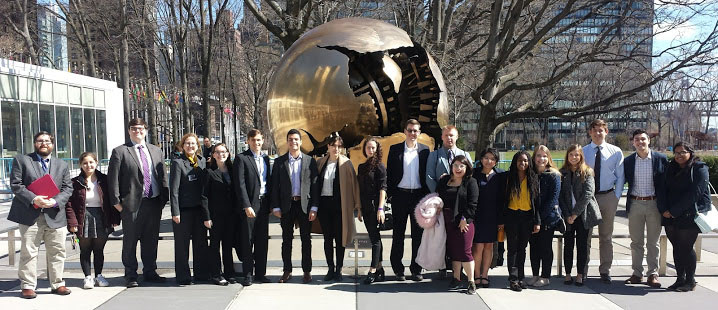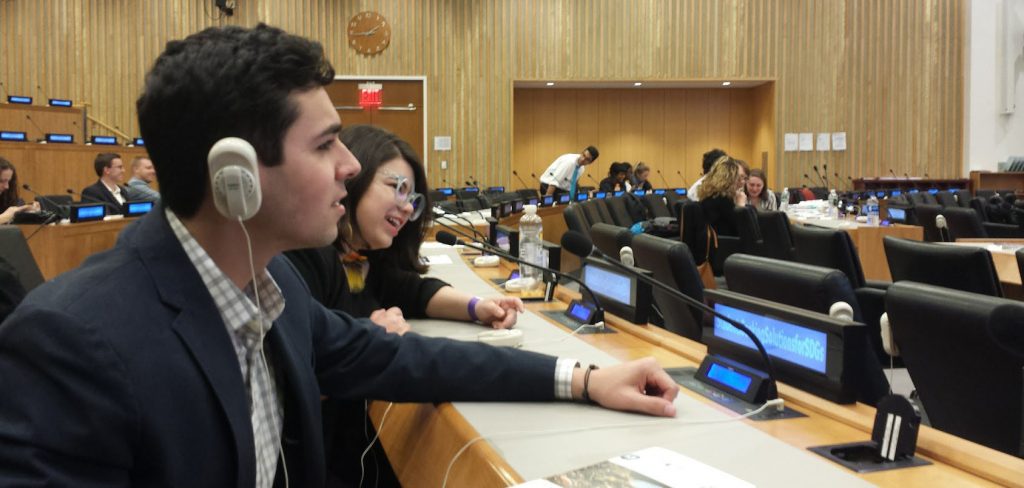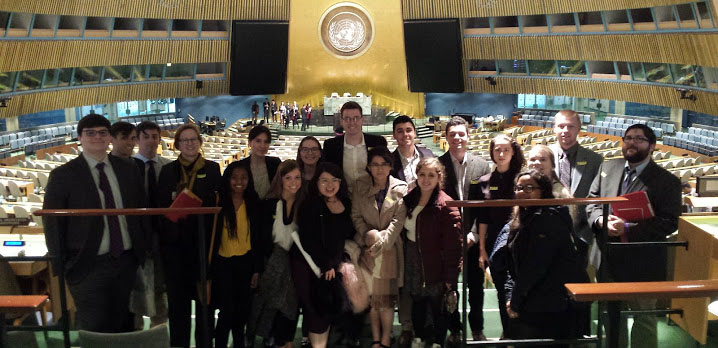No. 9 among small colleges in Best Value Schools ranking

By Bill Landauer
Kelvin Serem ’18 raised tens of thousands of dollars to build a school in his hometown, the remote village of Kibargoiyet, Kenya.
Geraldo Pereira Neto ’15 is an associate on the sovereign and country risk team for Morgan Stanley. The group is responsible for ensuring Morgan Stanley’s exposure in countries around the world is managed effectively.
Stephanie Tatge ’08 spent four years in East Africa helping to solve agriculture problems with Catholic Relief Services and the U.S. Peace Corps.
More Lafayette alumni and students are making their impact on a global scale, thanks in no small measure to the College’s rapidly growing international affairs (IA) program. And like the rest of the planet, the higher education community is taking notice.
This fall, the program was listed as No. 9 in a nationwide listing of the top international relations programs at small colleges by Best Value Schools.
“[T]here’s no denying that Lafayette College is among the best small colleges for political science and international relations degrees in the U.S.,” Best Value Schools says in an article on its website. “In addition to its requirement that all program members master a second (or third) language, Lafayette’s International Affairs curriculum features an abundance of travel opportunities that encourage students to look beyond their own horizons. These include summer language-study intensives in Italy, Germany, Mexico, and Spain; sister programs in DC and Manhattan; and semester-long courses in Asia, Europe, Africa, and Latin America. The best part? Students can apply their financial aid towards funding for any and all of these travel opportunities.”

Parker Gaglione ’18 and Victoria Hetherington ’18 at the United Nations conference
Meanwhile, the program is experiencing unprecedented growth. While Lafayette started the IA major in 1959, the number of students choosing it has nearly doubled in the past six years.
“A degree in international affairs could not be more timely. Our students understand that having a global perspective is no longer optional. The growth of the program reflects both their interests and our dedication to helping them grapple with globalization in all its complexity,” says Angelika von Wahl, associate professor and program chair.
In addition to von Wahl, Assistant Professor Caleb Gallemore and Professor Hannah Stewart-Gambino are the IA program’s core faculty members. But the program includes over 25 faculty from departments and programs across campus, providing a wealth of insight across many areas of expertise. Professors teaching international affairs courses come from the humanities, social sciences, natural sciences, and engineering.
“The IA program hits the right combination. We require rigorous core classes on globalization, fostering regional expertise, and diving into an area of thematic emphasis. Together these areas help our majors both understand and engage in the world,” von Wahl says.
For Neto, the knowledge gained has been invaluable.

“Having a degree in international affairs while working in finance has been particularly powerful as many folks in the industry have good training in ‘traditional’ finance and numbers, but are less attuned to global affairs and developments,” he says. “Perhaps more than ever before, geopolitics and international affairs have a big impact on financial markets, and being able to interpret and understand those developments is a key skill that has been fundamental in my career development.”
International affairs is a rigorous major. In addition to required training in research methods and substantive study in a foreign language, majors complete individual capstone projects on the global emergence and diffusion of a commodity, practice, or norm. Seniors trace the spread of diverse items across time and place, such as solar technology, local cuisines, coffee, or complex international norms, such as self-determination.
“Over the past three years the program has revamped its core curriculum, adding a new gateway course on globalization and overhauling the senior capstone,” von Wahl says. “The faculty have worked well together to develop a curriculum that is top-notch among liberal arts colleges.”
In addition to opportunities for study abroad, international affairs students connect to an array of domestic programs and events as well. Clara Randimbiarimanana ’18 and a group of senior capstone IA majors recently visited the United Nations and sat in on an international conference about water conservation. Students from around the U.S. gathered to discuss how to take global approaches to solve water crises the world over.
“It was a very exciting moment,” Randimbiarimanana says.



1 Comment
I applaud the opportunities this program offers both international students and American students to travel, experience and spread America generosity around the world. Having lived (+14 years), travelled another 5 for business I have been blessed to be able give to and receive the gifts of other cultures. It provides a perspective that is live changing, one that significantly helps to break down barriers. I wholeheartedly recommend that students leave their comfort zone and venture out. Our country and those they visit will be better for it.
Comments are closed.